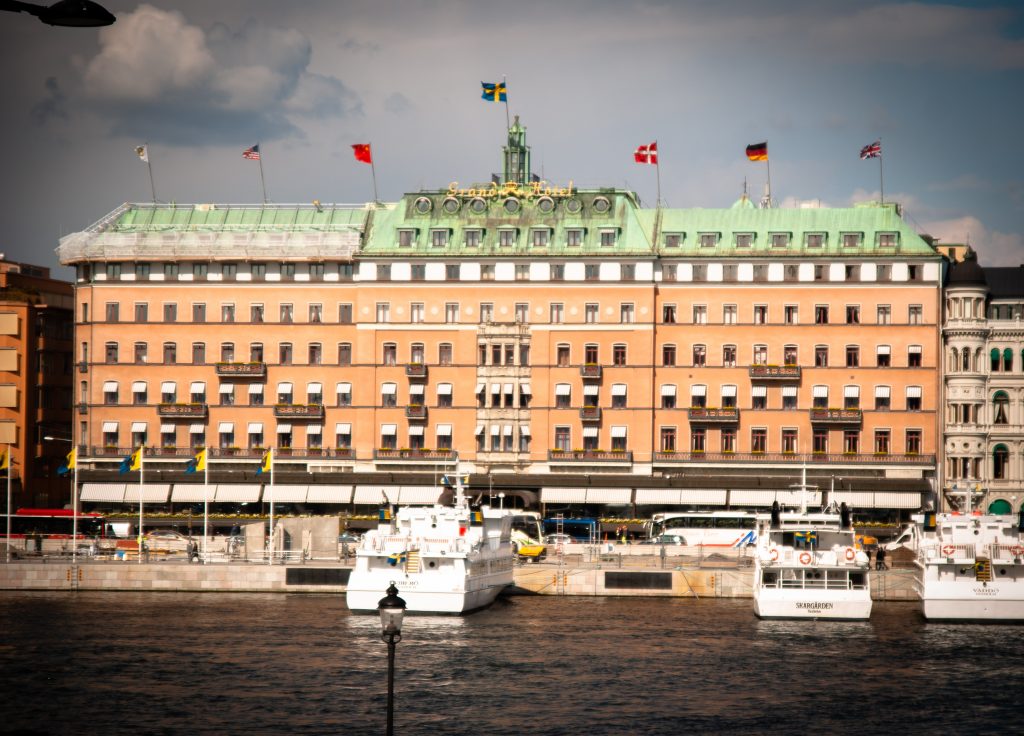
A Grand Stage in the Heart of Stockholm:
The Grand Hôtel is a Premier Venue
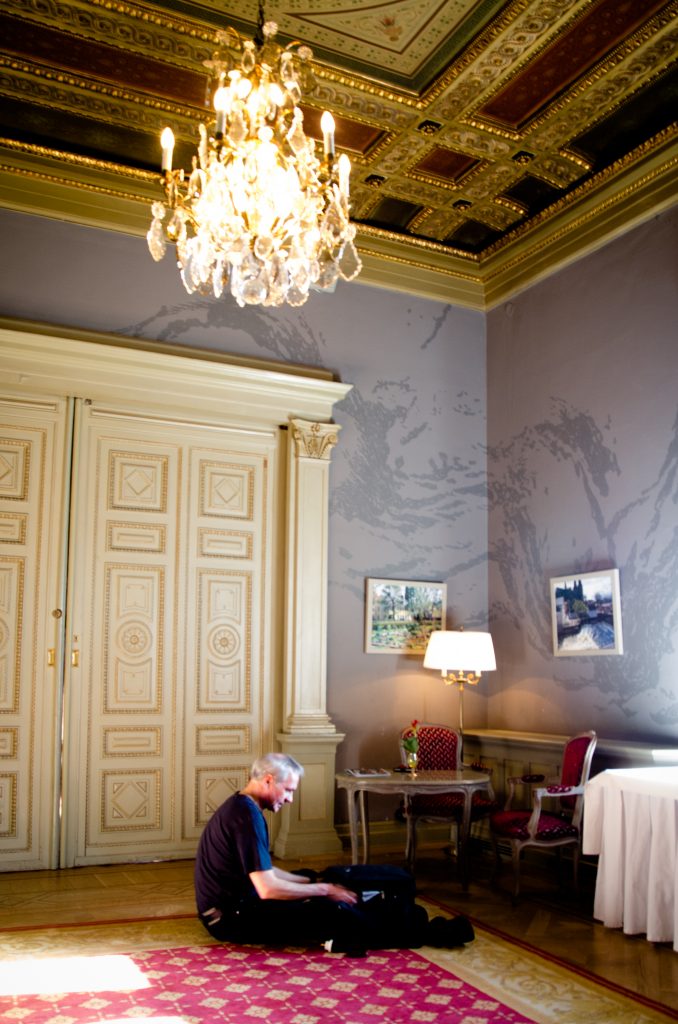
Nestled on Stockholm’s waterfront, facing the Royal Palace and the winding alleys of Gamla Stan, The Grand Hôtel is more than just a luxury hotel — it is a historic institution and a truly iconic event venue. I have worked at the hotel many times and love it as a venue. Since opening in 1874, this establishment has hosted royalty, Nobel laureates, statesmen, and luminaries from around the world. (grandhotel.se)
As a venue for weddings, corporate events, gala dinners, conferences, or celebrations, The Grand Hôtel combines heritage, grandeur, flexibility, and modern amenities that few venues can match. Below, we explore what sets it apart—and how event organisers can leverage its strengths.
A Rich History That Inspires
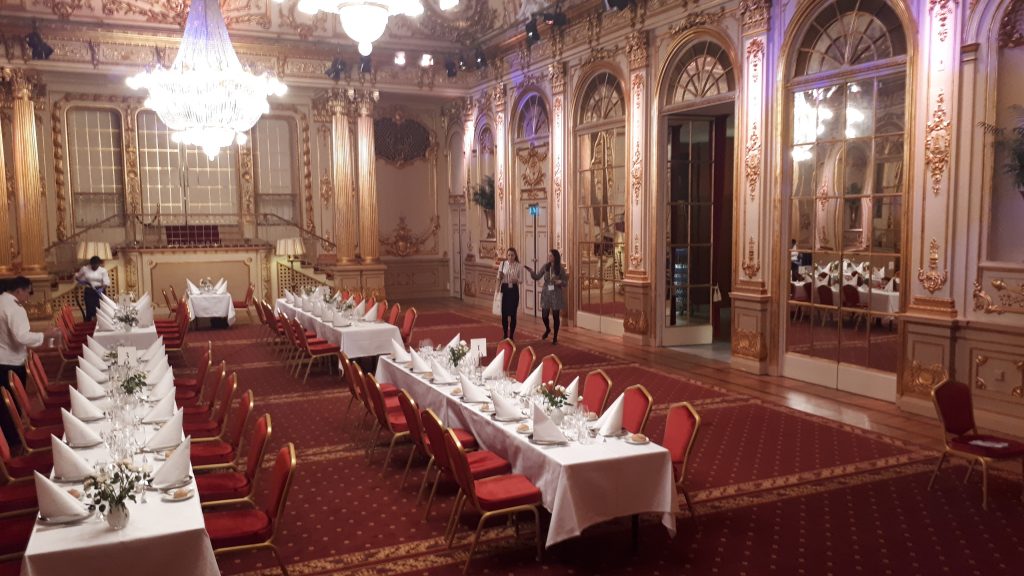
Hall of Mirrors, Spegelsalen
The Grand Hôtel was established by French chef Régis Cadier, who envisioned a European-style luxury hotel in Stockholm. Since opening, the hotel has hosted countless significant events. Perhaps most famously, it was the venue for the first Nobel Prize Banquet in 1901 (held in the hotel’s Hall of Mirrors, Spegelsalen). This association continues to enhance the venue’s prestige.
Over the decades, the hotel has kept pace with changing expectations, undergoing regular renovations (such as a major refurbishment in 2017–18) to uphold modern standards of comfort and technological capacity. (Wikipedia) Its history, lineage, and reputation offer a compelling story for any event — the venue itself becomes a point of conversation.
Location & Setting: In the Heart of Stockholm
One of The Grand Hôtel’s most significant advantages is its location. Situated on Blasieholmshamnen, it provides stunning views of the Palace and Old Town, placing guests at the heart of Stockholm’s most historic and picturesque areas. (grandhotel.se) Guests and event attendees benefit from close proximity to museums, cultural landmarks, high-end shops, restaurants, and efficient transport links. (Forbes Travel Guide)
From a logistics perspective, such a central location helps reduce travel friction for attendees and offers excellent opportunities for photo shoots, sightseeing activities, and city-based programme elements.
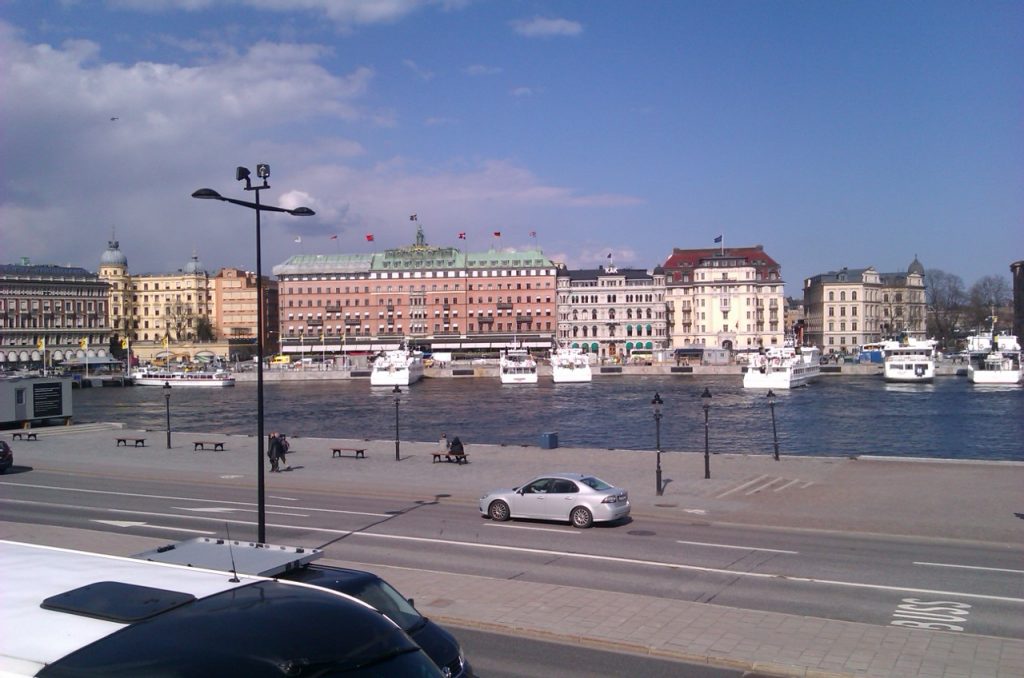
Diverse and Elegant Event Spaces
The Grand Hôtel provides a diverse selection of event rooms, each with its own character, size, and technological features. (grandhotel.se)
Spegelsalen (Hall of Mirrors): With its gilded décor, ornate mirrors, and timeless elegance, this venue is popular for ceremonies, gala dinners, or other high-profile events.
Other heritage rooms and annexes: The hotel also incorporates the Bolinderska Palatset (Bolinder’s Palace), a heritage building attached to the central hotel, used for additional meeting or reception spaces.
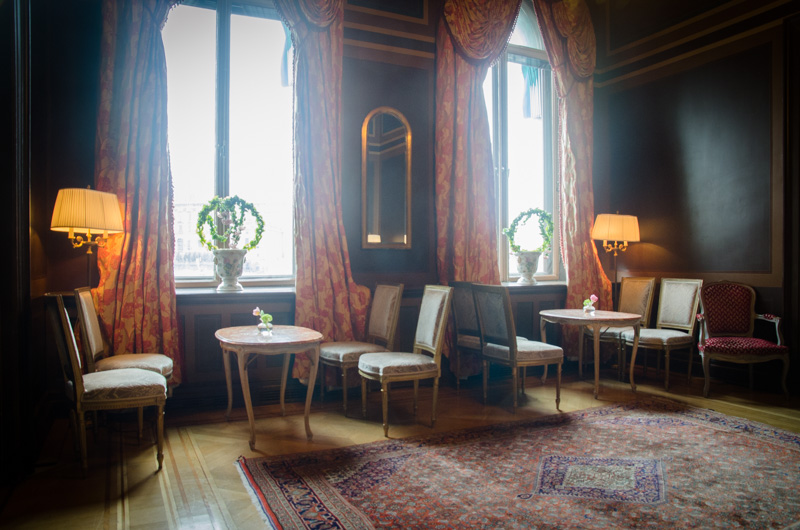
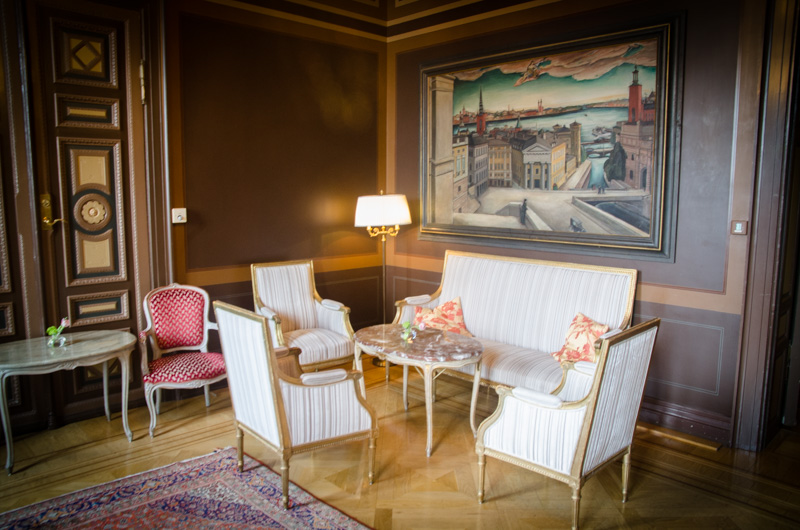
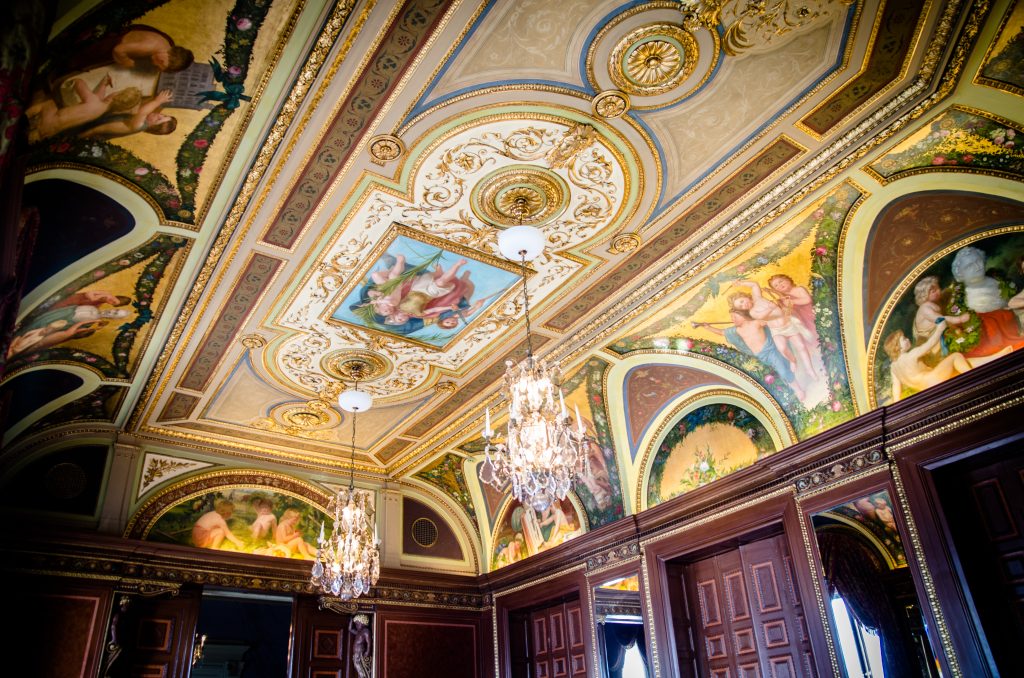
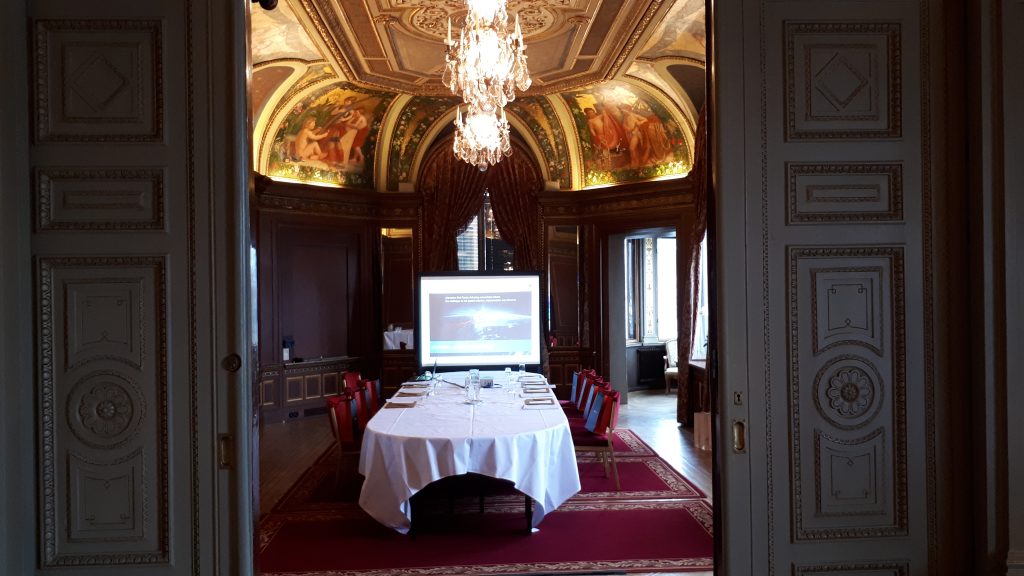
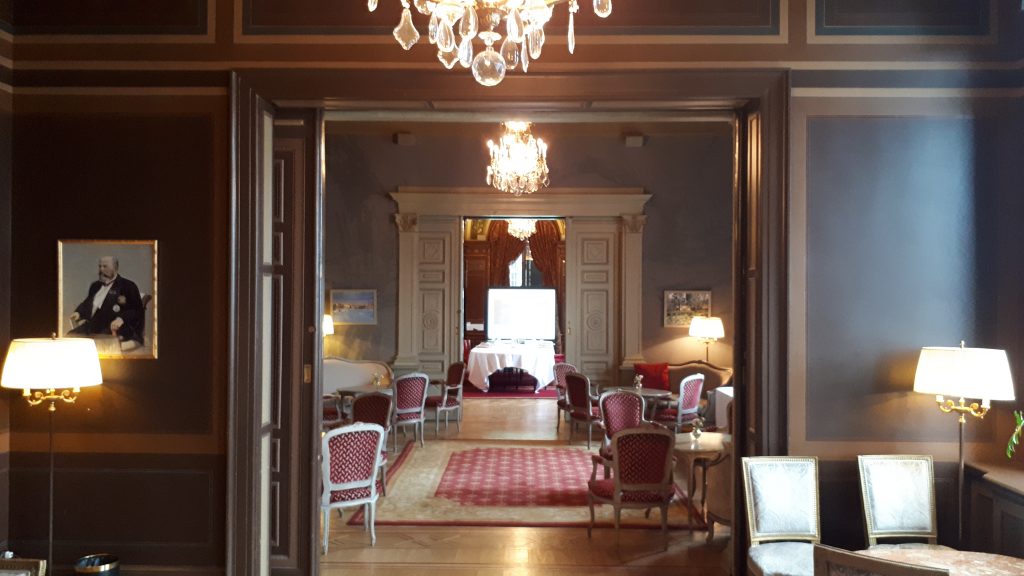
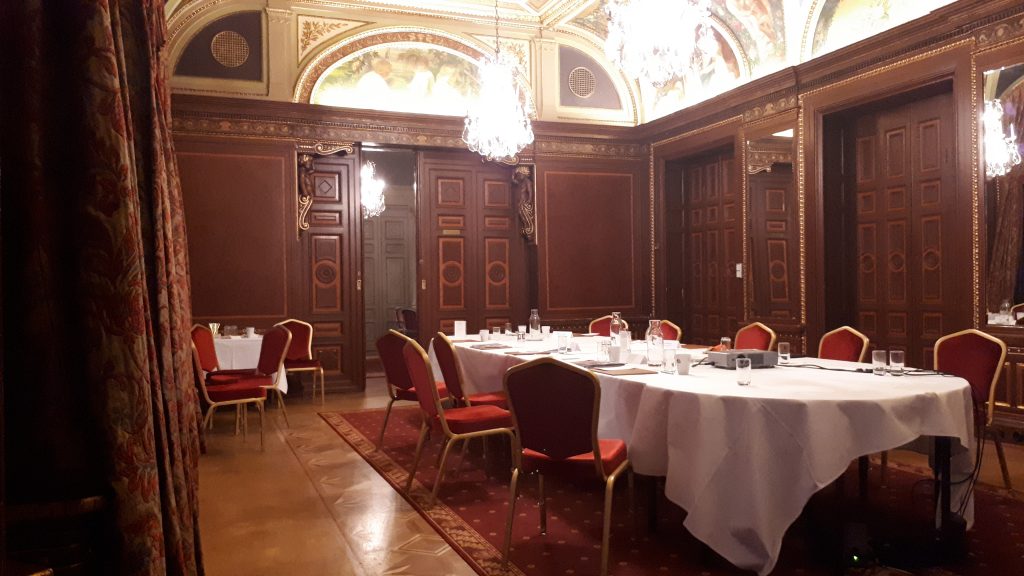
Modern conference rooms: The hotel now offers contemporary, state-of-the-art rooms (named Stockholm, New York, Berlin, Paris) equipped with full AV capabilities. The “Stockholm” room, for instance, functions as an auditorium seating 215, with adjacent space for exhibitions or socialising.
Capacity & numbering: The venue can host events ranging from tiny groups (2–10 people) to large gatherings (up to approximately 800 participants) across its 24 conference rooms.
Customisation & flexibility: The hotel emphasises that no meeting is too large or too small, offering bespoke layouts, décor, catering, lighting, and flow.
This wide range of options allows a planner to organise several parallel sessions, receptions, gala dinners, and breakout areas, all within walking distance of each other, under a single hospitality umbrella.
Hospitality, Culinary Excellence & Support Services
Beyond walls and ceilings, a venue’s “soft” services often set apart the good from the great — and here The Grand Hôtel has a strong pedigree.
Experienced event team: The hotel has extensive experience organising major and bespoke events, tailoring each to the client’s needs. (Cvent)
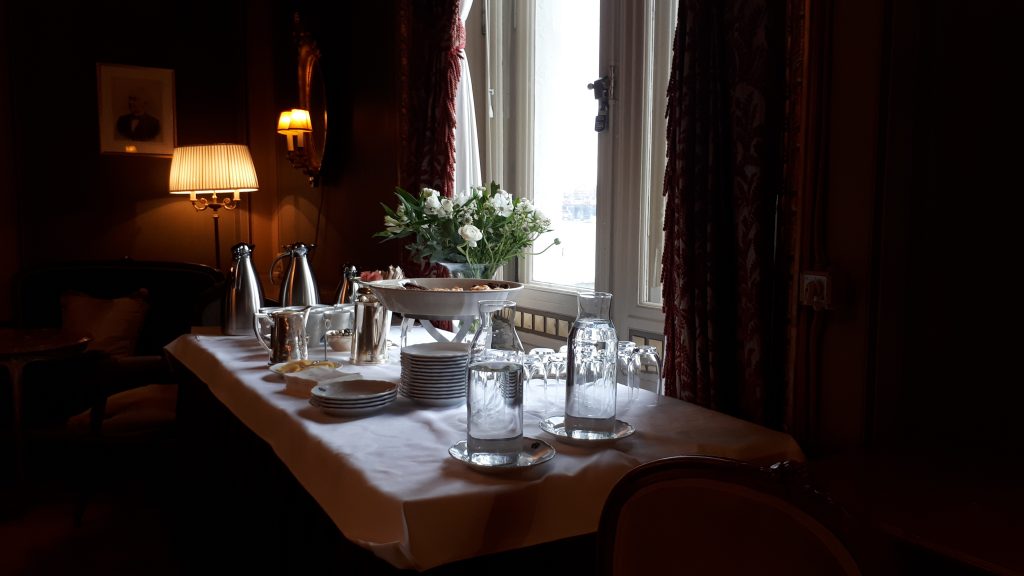
Catering & Food & Beverage: The hotel features several top-tier restaurants — the classic Veranda (renowned for its smörgåsbord), Matbaren under chef Mathias Dahlgren, and the Cadier Bar, among others. This offers planners flexibility for formal dinners, cocktail receptions, tasting menus, or more casual and innovative formats
Support infrastructure: The venue provides comprehensive AV, lighting, stage setup, décor, floral arrangements, event planning, and smooth integration of technical elements. (Conference Hotel Group)
Accommodation integration: Since the venue is a luxury hotel, organisers can incorporate guest lodging, hospitality suites, VIP check-in, and seamless transitions between the event and overnight stays. This greatly simplifies logistics and maintains quality control.
Leisure & wellness amenities: For multi-day events, attendees can utilise the hotel’s Nordic Spa & Fitness, indoor pool, sauna, and wellness treatments — ideal for unwinding between sessions.
All of these factors combined mean that an event at The Grand Hôtel can be immersive and cohesive — attendees don’t have to leave the “bubble” of the venue, which enhances the experience and helps maintain momentum.
Aesthetic and Branding Value
One should not underestimate the intangible value of hosting an event in a venue with heritage, cachet, and prestige. The walls of The Grand Hôtel hold stories: Nobel laureates have been guests here for over a century, and many of its event rooms remain iconic. (historichotelsthenandnow.com)
This association offers rich material for marketing, invitations, collateral, and the attendee experience. “An evening in the Hall of Mirrors,” or “hosted at the same hotel as Nobel laureates,” are phrases that carry weight. The imagery is striking: combining classical architecture, mirror halls, chandeliers, and city views creates a visually powerful backdrop for photography, social media, and brand storytelling.
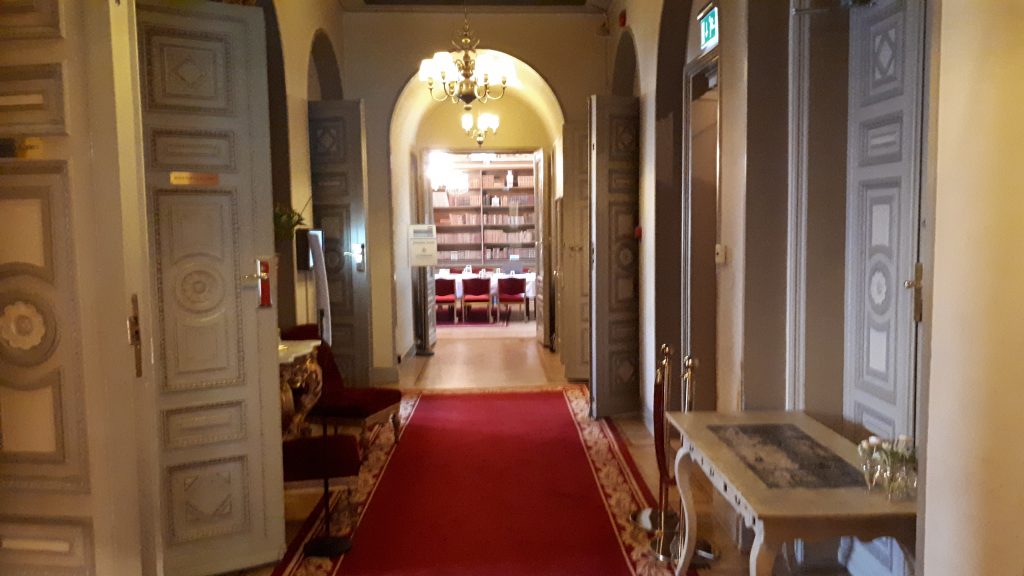
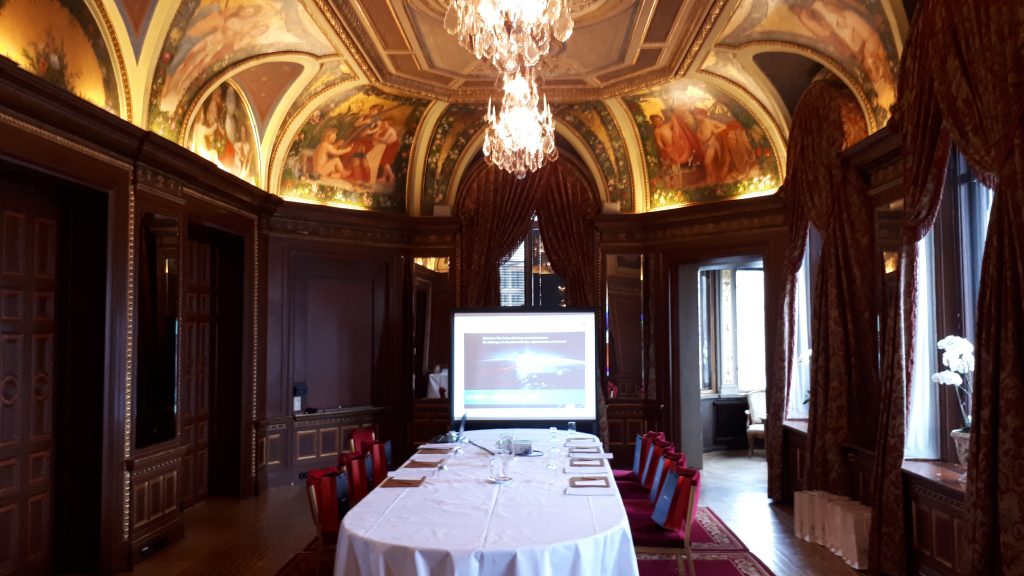
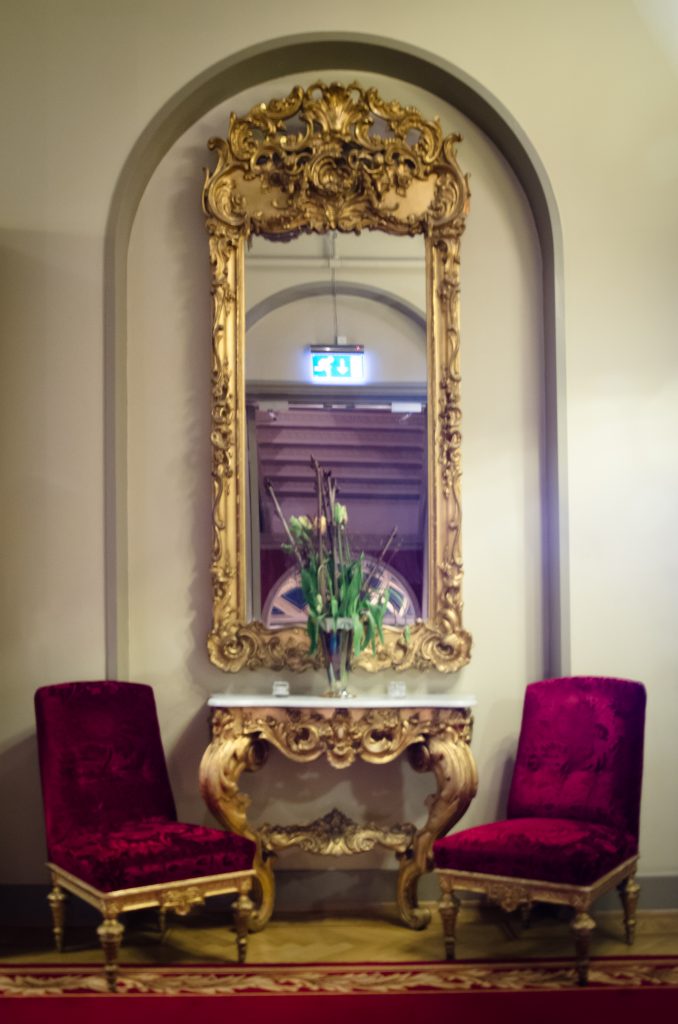
Tips and considerations for planners
While The Grand Hôtel offers so much, successful execution requires attention to detail. Here are a few tips:
- Book early and confirm exclusivity: Due to its popularity and prestige, the hotel may have limited available dates, be fully booked, or be privately hired (entire-house bookings have indeed occurred). (Cvent)
- Understand capacity limits: Although the hotel can host up to 800 participants across all rooms, individual rooms have specific capacity limits; match your guest list to the appropriate room (e.g., the 215-seat auditorium) and include a backup plan.
- Logistics for parallel flows: When organising multiple tracks or parallel sessions, ensure the routing, signage, and sound isolation are properly managed (and consult the hotel’s event team).
- Incorporate breaks and movement: Utilise the hotel’s multiple foyers, corridors, terraces, and indoor/outdoor spaces to organise coffee breaks, networking zones, or exhibitions.
- Lighting & AV customisation: Although the hotel is well equipped, for dramatic effect, you might want bespoke lighting or staging — coordinate early with their AV team.
- Branding and décor guidelines: Since the building is historic and many areas are heritage-listed, such as Bolinderska, there may be restrictions on nails, adhesives, or structural modifications. Plan décor with care.
- Catering menus and dietary constraints: Due to the high culinary standard, you have considerable flexibility — but make sure to finalise menus well in advance, especially for large groups or special dietary requirements.
- Guest experience paths: Highlight the hotel’s strengths — e.g., arrival in the grand lobby, welcome drinks in Cadier Bar, dinner in Spegelsalen, after-party in a modern room — to craft a memorable journey for guests.
- Audio footprints and acoustics: Some older rooms have acoustical quirks; test your sound setup beforehand.
- Adjacent lodging and overflow: For huge events, you may need to arrange nearby partner hotels; ensure communication and transport links are seamless.
Conclusion
When organising a distinguished event in Stockholm, The Grand Hôtel is a venue that combines gravitas, elegance, flexibility, and top-tier services. Its heritage — from Nobel banquets to royal guests — lends an intrinsic aura; its location in the city’s vibrant centre offers convenience and visual appeal; its range of rooms and modern infrastructure provides planners with options; and its hospitality, culinary excellence, and support services ensure an elevated attendee experience.
For any organisation or individual looking to host an event where setting, story, and service all matter, The Grand Hôtel provides not just rooms and halls — it offers an experience.
Travel essentials I recommend for delegates and conference travellers:


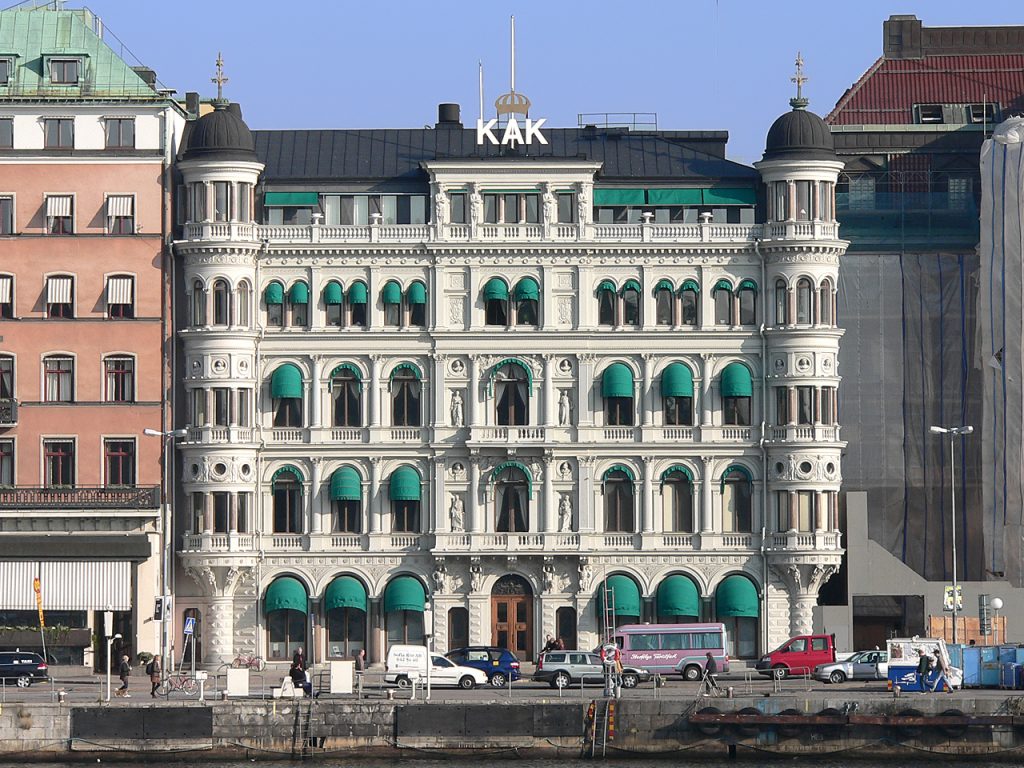
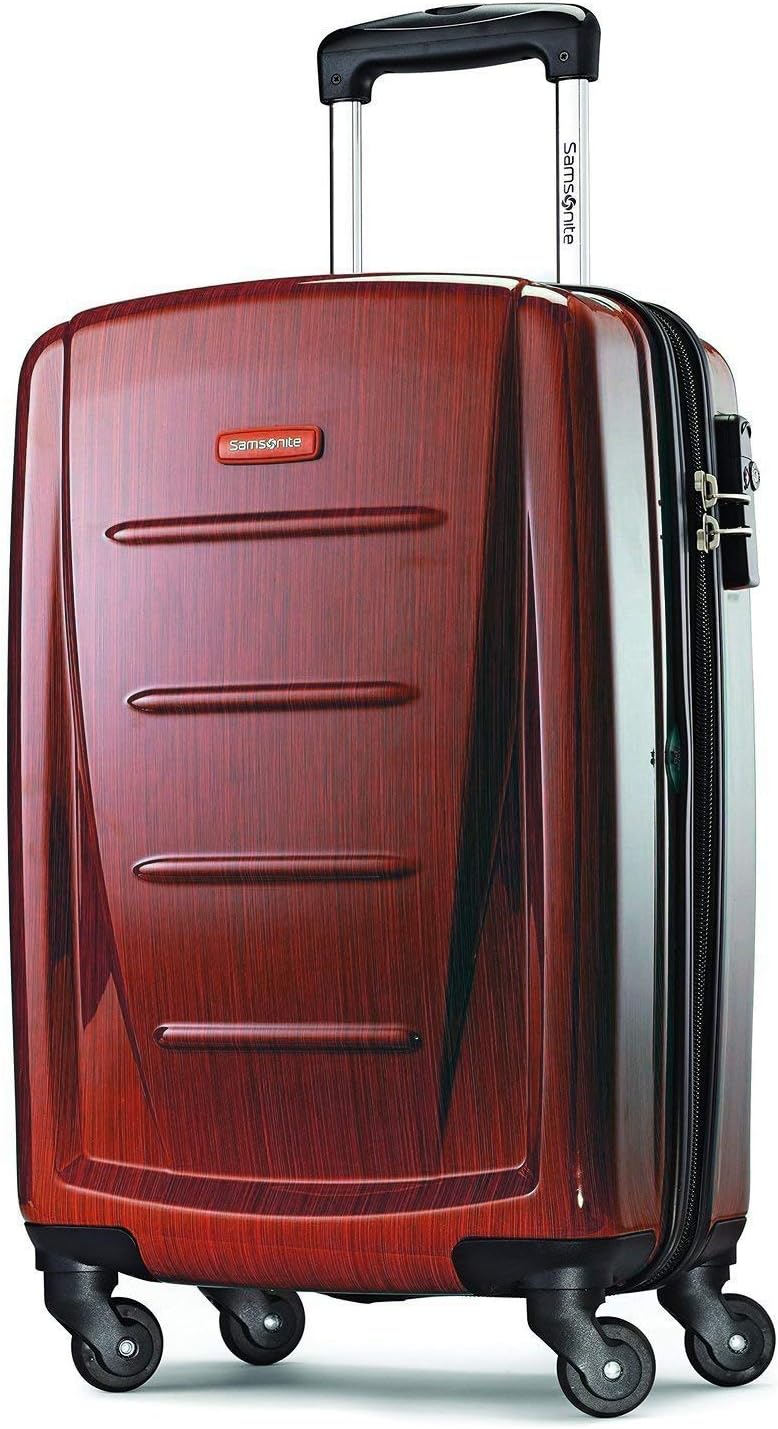
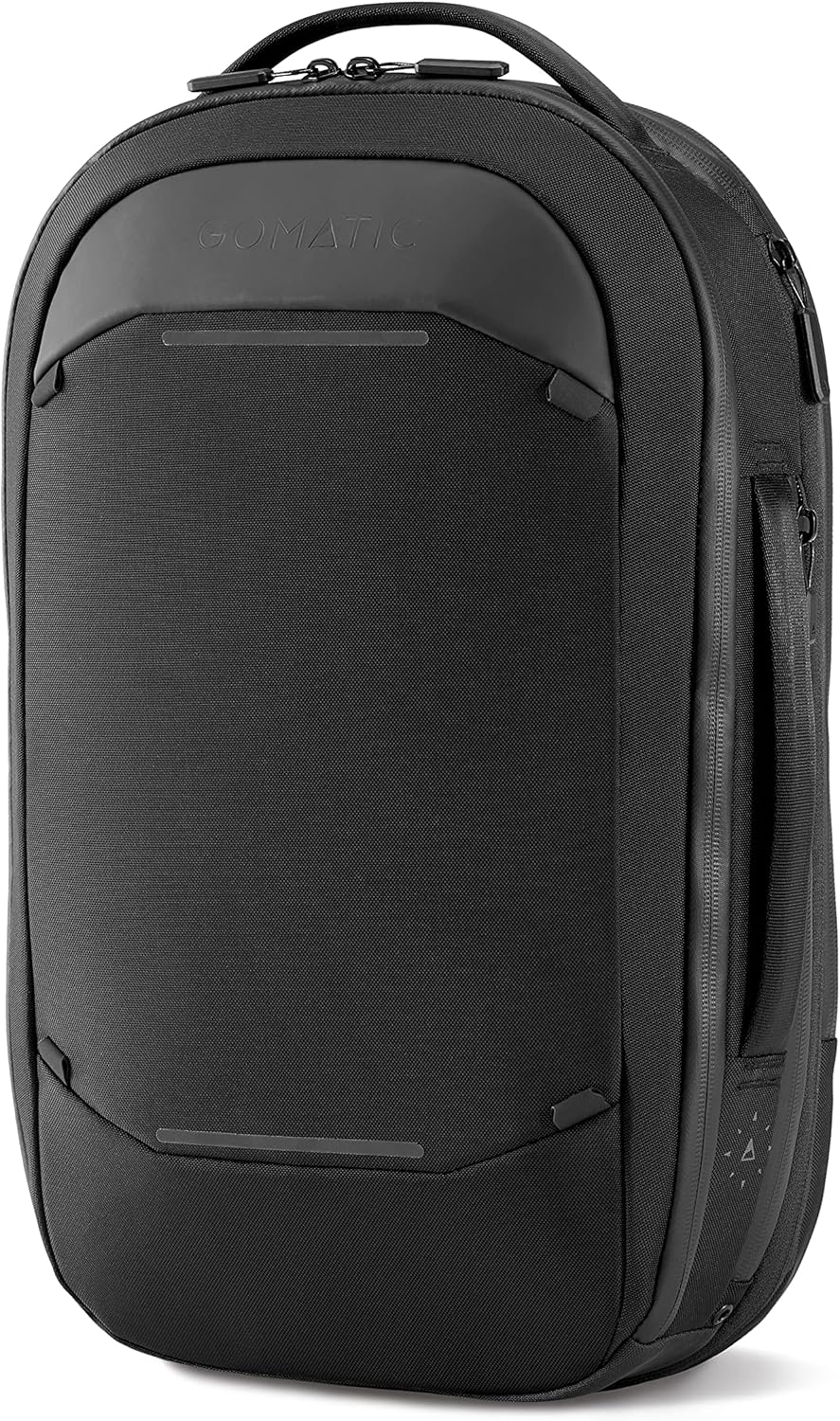
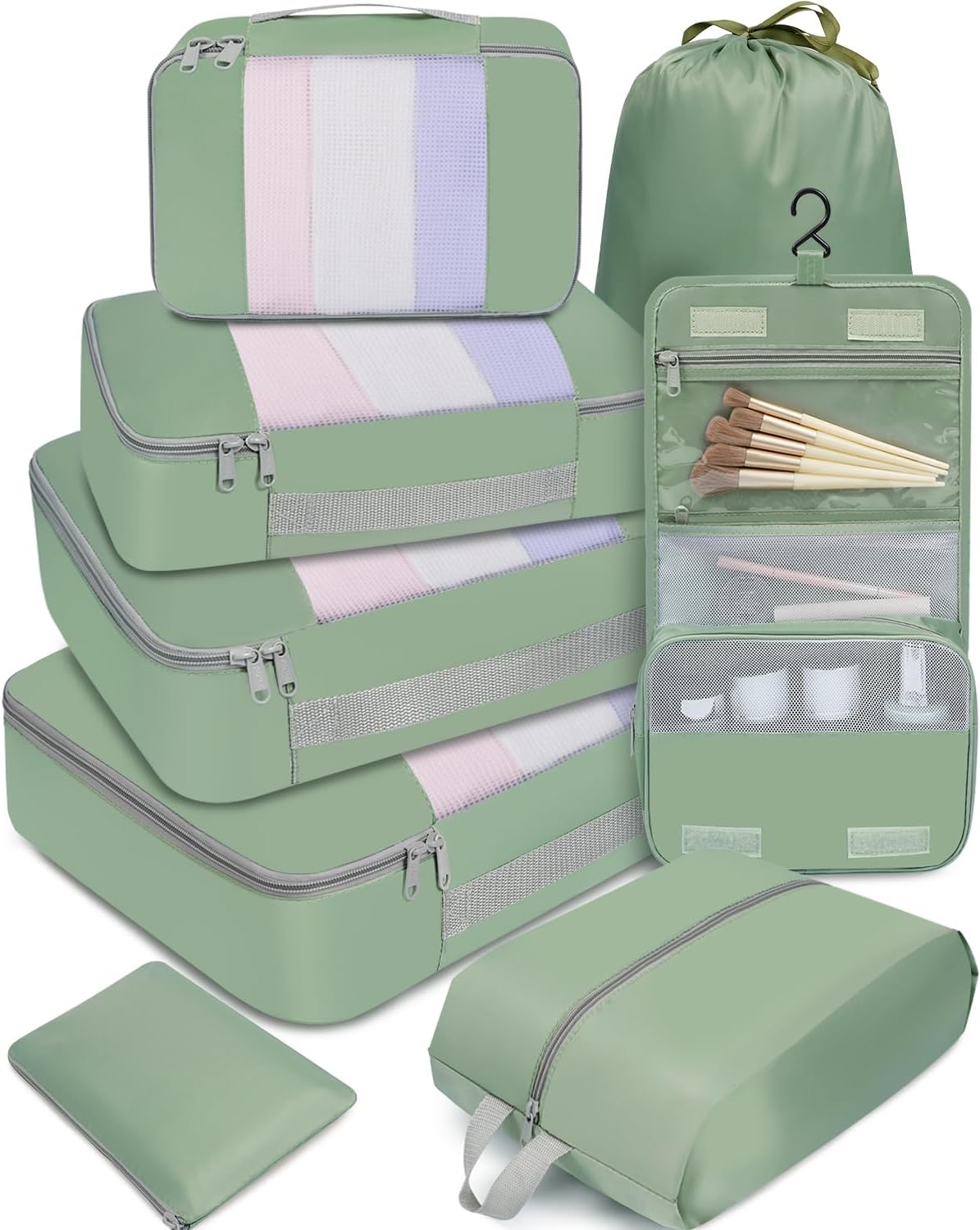
Leave a Reply